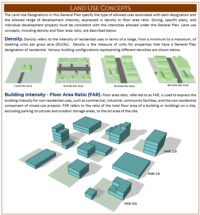Two new wineries, one with sweeping views of San Pablo Bay, the other – “because it takes good beer to make fine wine” — with a micro-brewery, were unanimously approved by the Sonoma Valley Citizens Advisory Commission Wednesday night.
Paradise Vineyards, currently growing grapes on the hill to the south of the intersection of Highways 37 and 121, proposes adding a winery with an annual production of 32,000 cases. The campus would include a tasting room and a visitor center to host up to 150 events a year.
Entry to the winery would be at the existing highway four-way stoplight. A driveway would curl up the slope through new vineyards to the buildings atop the hill. “The fundamental idea was to blend the buildings with the topography,” said Earl Wilson of BAR Architects. “Natural materials will be used to enhance the idea that the buildings are connected to the land.”
A county regulation discourages hilltop development, but Wilson said the project was designed to project the lowest possible profile. The site is surrounded by land owned by the Sonoma Land Trust.
Use of stone and other natural materials “will ground the buildings to the site,” he said, while “the curved roofs reinforce the shape of the hills.” The roofs themselves will be planted with native, drought-resistant plants.
Owner Jean Kapolchok said there is no vegetation on the planned design footprint right now. With the new vineyard plantings, “there will be a net gain in agricultural resources.”
Commissioners focused their concerns on the proposed calendar of 150 events, primarily in regards to the amount of traffic they would generate. “This far exceeds the numbers (of events) we’ve previously allowed,” said Bob Williams. “The event thing is becoming the main activity and the winery is a sideline”
Commissioner Clarence Jenkins argued, “Events have become part of the winery business. It’s critical to business success.”
The commission has previously wrestled with the question of special events, but no standards have been set. Commissioner Jeff Baptista said the winery, adjacent to major highways and equipped with a four-way light, would be an ideal event location, and could be used to set the high end of what might be permitted Valley-wide.
With a request to review the special events clause, the project was unanimously approved.
Far less time was spent approving the Armando Ceja Family Winery and Micro-Brewery, at 2475 Fremont (Highway 12) at Burndale Road. The project would encompass the current Ceja vineyards and an adjacent auto body shop.
Ceja owns five vineyards, four in Carneros and one in Petaluma, and operates a tasting room in Napa. The new facility would produce 40,000 cases of wine annually.
The simple, barn-like design includes a tasting room for both wine and beer. “We’ve got a brewer in the family, working for Anheuser-Busch in St. Louis,” Ceja said.
Ceja has started growing his own hops on the property. “It takes a lot of good beer to make fine wine.”
Commissioners did not lament the impending demise of the less-than-picturesque body shop. “I would call this country redevelopment,” said commission chair Cynthia Wood. “It’s a pleasure to see something to better the community.”
Three neighbors of the project spoke in support. “The neighbors are happy,” Wood said. “That’s always important. “
The Sonoma Valley Citizens Advisory Commission provides a regular forum for citizen participation in the formation of public policy, considers issues concerning the Sonoma Valley and advises elected officials and other decision makers.
The recommendations from Wednesday’s meeting will now go to the Sonoma County Permit and Resource Management Department for further review.
Two new wineries one step closer
More from NewsMore posts in News »




